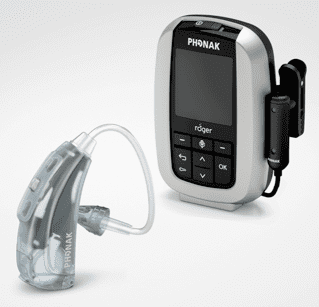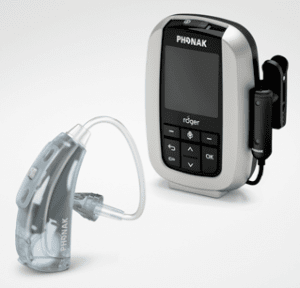According to a University of Melbourne study published in the November 3, 2014 edition of the journal Ear & Hearing, children who suffered middle ear disease (otitis media) in early childhood were found to suffer from binaural speech perception deficits that persist for years after. Spatial listening difficulties can lead to poor understanding of a teacher’s voice in a noisy classroom. According to a report from Phonak on the study, appropriate intervention for these children would include remedial strategies such as auditory training, the use of assistive listening devices such as the Phonak Roger system for education and environmental modifications.
Phonak’s report includes a recommendation that children with a known history of middle ear disease be assessed for spatial listening ability at school entry. LiSN-S (Listening in Spatialized Noise-Sentences) by Phonak is a diagnostic test that assesses the spatial processing in patients. The diagnostic test LiSN-S was developed by Harvey Dillon, PhD, and Sharon Cameron, PhD, of the National Acoustics Laboratories (NAL) in Australia.
The research study by Gary Rance, MSc, PhD (MAudSA CC), and Dani Tomlin, PhD candidate, from the University of Melbourne, Australia, showed that the risk of perceptual problems is increased with earlier onset and longer disease duration. Affected children are likely to be disadvantaged in the classroom as the ability to isolate auditory information, such as the teacher’s voice, from the background noise is impaired. Early identification and awareness of the long-term effects of otitis media or middle ear infection support the need for decisive medical management of this disorder.
“Middle ear disease is the most common reason for physician referral in children, and most youngsters suffer at least one episode in the first 2 years of life,” said Gary Rance, audiologist and associate professor at the University of Melbourne. “While middle ear disease resolves quickly in most cases, our research found that temporary hearing fluctuations in the pre-school period can have lasting effects on auditory processing, resulting in speech perception deficits severe enough to disrupt everyday communication and academic progress.”
Source: Phonak






